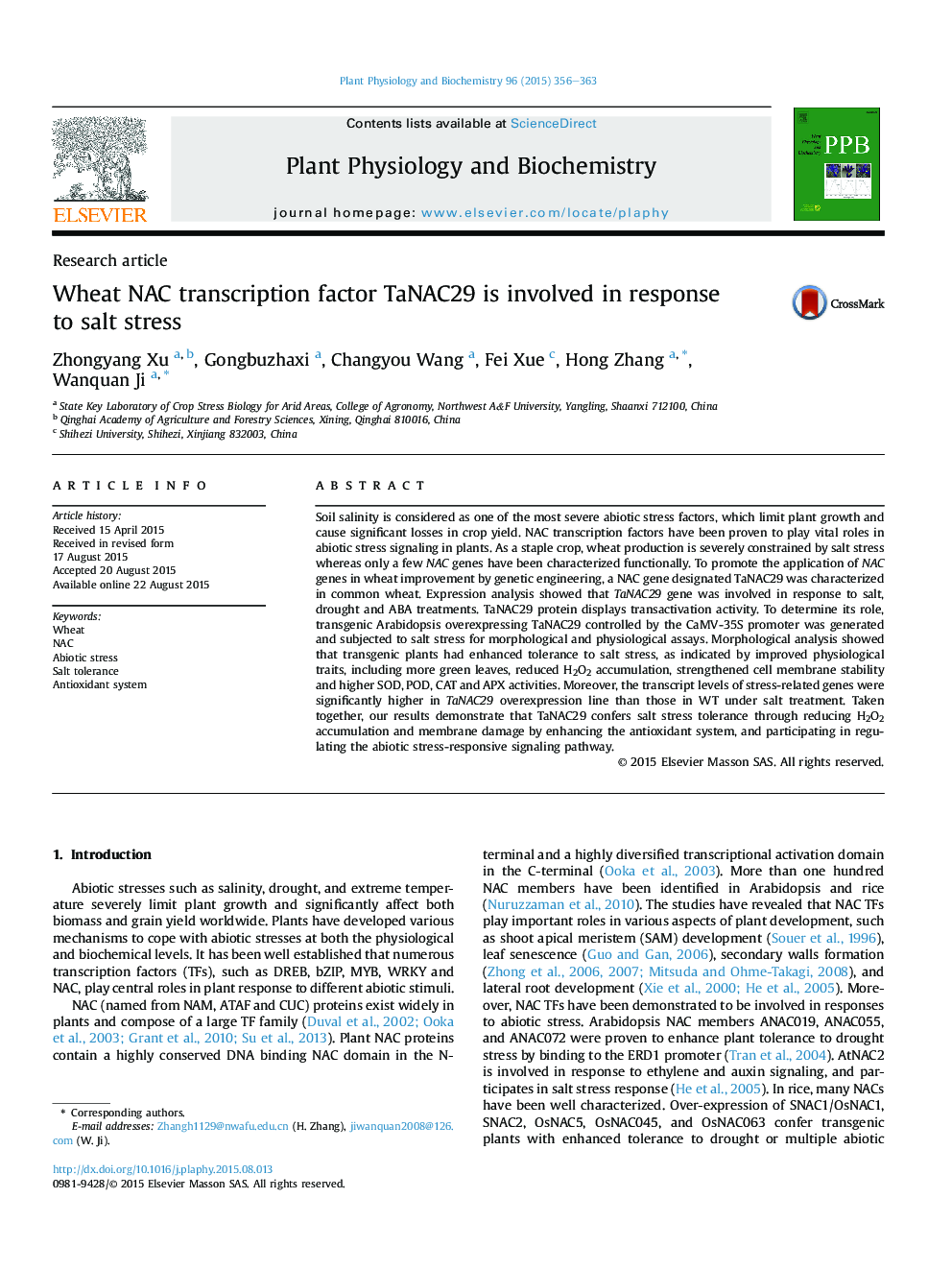| Article ID | Journal | Published Year | Pages | File Type |
|---|---|---|---|---|
| 8354784 | Plant Physiology and Biochemistry | 2015 | 8 Pages |
Abstract
Soil salinity is considered as one of the most severe abiotic stress factors, which limit plant growth and cause significant losses in crop yield. NAC transcription factors have been proven to play vital roles in abiotic stress signaling in plants. As a staple crop, wheat production is severely constrained by salt stress whereas only a few NAC genes have been characterized functionally. To promote the application of NAC genes in wheat improvement by genetic engineering, a NAC gene designated TaNAC29 was characterized in common wheat. Expression analysis showed that TaNAC29 gene was involved in response to salt, drought and ABA treatments. TaNAC29 protein displays transactivation activity. To determine its role, transgenic Arabidopsis overexpressing TaNAC29 controlled by the CaMV-35S promoter was generated and subjected to salt stress for morphological and physiological assays. Morphological analysis showed that transgenic plants had enhanced tolerance to salt stress, as indicated by improved physiological traits, including more green leaves, reduced H2O2 accumulation, strengthened cell membrane stability and higher SOD, POD, CAT and APX activities. Moreover, the transcript levels of stress-related genes were significantly higher in TaNAC29 overexpression line than those in WT under salt treatment. Taken together, our results demonstrate that TaNAC29 confers salt stress tolerance through reducing H2O2 accumulation and membrane damage by enhancing the antioxidant system, and participating in regulating the abiotic stress-responsive signaling pathway.
Related Topics
Life Sciences
Agricultural and Biological Sciences
Plant Science
Authors
Zhongyang Xu, Gongbuzhaxi Gongbuzhaxi, Changyou Wang, Fei Xue, Hong Zhang, Wanquan Ji,
